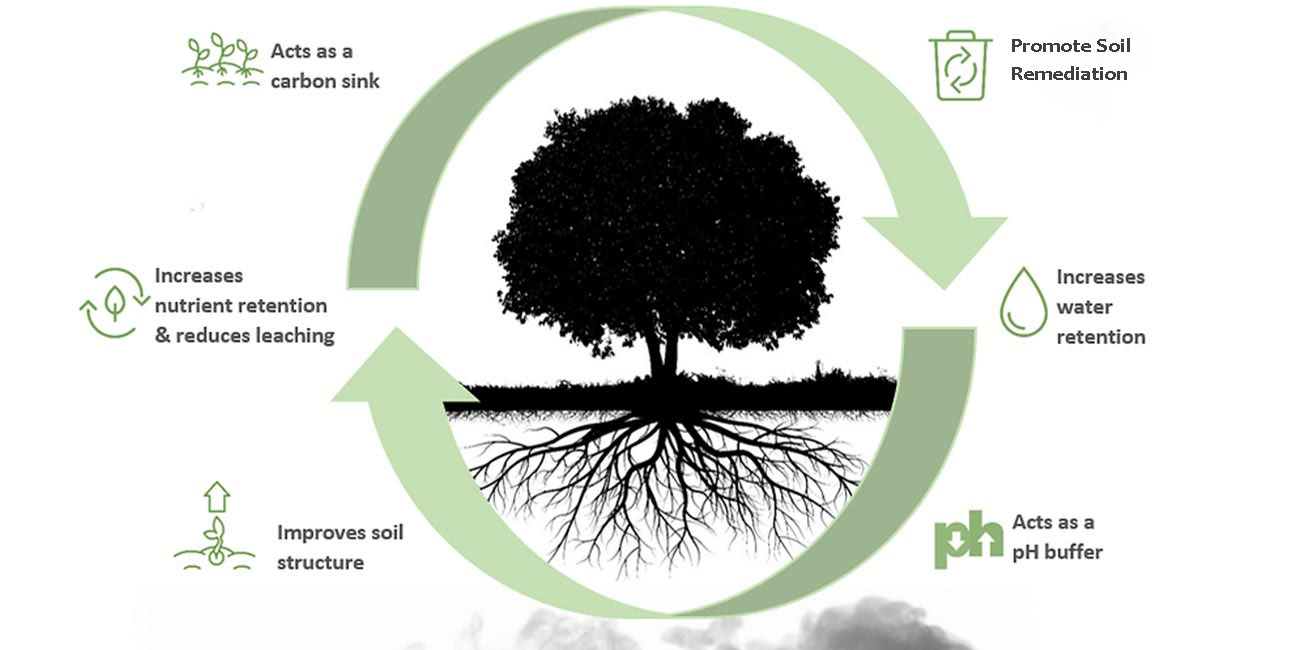Optimizing Soil Health: Understanding the Frequency of Biochar to Soil Application
When it comes to biochar to soil application, the frequency and timing play pivotal roles in optimizing soil health and fertility. Biochar, a porous carbonaceous material derived from organic matter through pyrolysis, has garnered attention for its potential to enhance soil quality, sequester carbon, and promote plant growth. However, determining the ideal frequency of biochar to soil incorporation remains a subject of considerable debate among agronomists and researchers.
Adding biochar to soil can yield long-term benefits, but it’s essential to strike a balance to avoid overapplication or underutilization. The frequency of biochar to soil integration hinges on various factors:
Soil Type and Characteristics
Different soil types exhibit distinct behaviors towards biochar. For instance, sandy soils might require more frequent applications compared to clayey soils due to their lower water retention capacity. Understanding your soil’s properties is crucial in devising an effective biochar from biochar production equipment application strategy.

Crop Rotation and Growth Patterns
The frequency of biochar to soil addition can be tailored to suit crop rotation cycles and growth patterns. For annual crops, integrating biochar periodically, such as every two to three years, may suffice. Conversely, perennial plants might benefit from more frequent but lighter biochar applications to sustain continuous growth.
Environmental Conditions
Environmental factors such as rainfall, temperature fluctuations, and microbial activity influence biochar from biochar pyrolysis equipment breakdown and nutrient release in the soil. In regions experiencing higher precipitation, biochar might degrade faster, necessitating more frequent applications to maintain its efficacy.
Initial Soil Conditions
Assessing the initial soil conditions serves as a benchmark for determining the frequency of biochar to soil incorporation. Soils depleted of organic matter or suffering from nutrient deficiencies might benefit from more frequent applications initially to kickstart soil improvement.
Desired Goals and Objectives
The intended goals and objectives significantly impact the frequency of biochar applications. If the primary aim is carbon sequestration, less frequent but substantial applications might be preferred. Conversely, for immediate improvement in soil fertility, more frequent biochar additions may be necessary.
Striking a balance between reaping the benefits of biochar and avoiding its excessive use is crucial. Overapplication of biochar might lead to nutrient immobilization, altering soil pH, and impeding plant growth. Conversely, infrequent applications may not yield the desired long-term soil enhancement effects. See the sawdust charcoal making machine here.

Recommendations for Biochar to Soil Application Frequency:
- Regular Soil Testing: Conduct periodic soil tests to evaluate nutrient levels and adjust biochar applications accordingly.
- Adapt to Soil Changes: Monitor soil changes over time and adjust the frequency of biochar addition based on observed alterations in soil structure and nutrient content.
- Tailored Application: Customize biochar application frequency based on specific crop needs, soil characteristics, and environmental factors.
- Gradual Integration: Consider gradual integration of biochar into soil over multiple applications rather than a single large dose to allow for better incorporation and effectiveness.
- Long-term Perspective: Focus on the long-term benefits of biochar in soil health improvement rather than expecting immediate results, emphasizing consistency in application.
In conclusion, the frequency of biochar to soil addition is contingent upon a myriad of factors. A tailored approach considering soil type, environmental conditions, crop requirements, and long-term objectives is crucial for reaping the maximum benefits while avoiding potential drawbacks. Striving for a balanced and informed biochar application regimen stands pivotal in enhancing soil health and sustainability in agricultural practices. More related information about Beston Group.